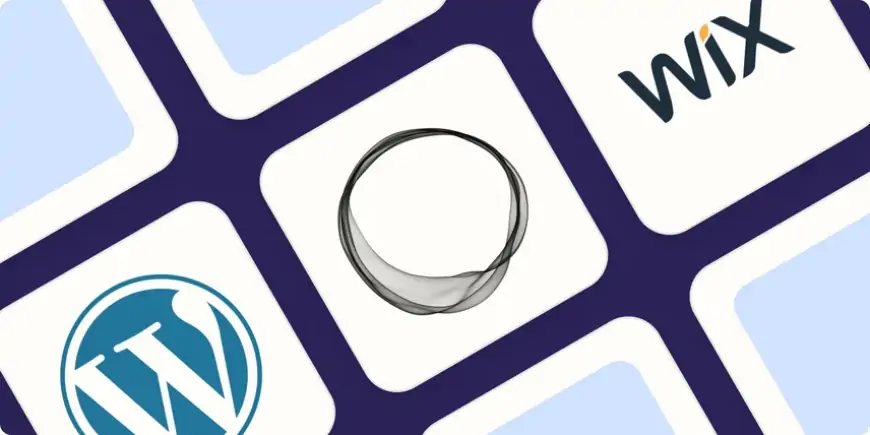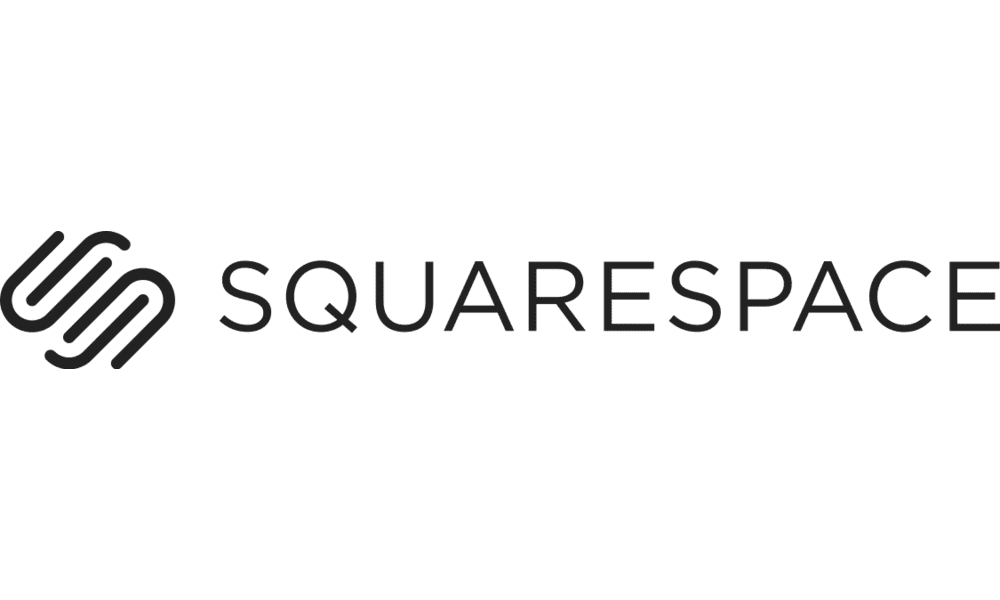Best blogging platforms: Our top picks
Discover the best blogging platform for your needs. Focus on ease of use, integrations, templates, and features to ensure a seamless blogging experience.

The top blogging platforms of 2024

Read Digimagg's Review
Wix is a leading website builder known for its ease of use and flexibility, making it an ideal choice for beginners and small business owners. With its drag-and-drop editor, users can easily customize their websites without any coding knowledge. Wix offers a wide selection of professionally designed templates, catering to various industries, from eCommerce to creative portfolios.
One of the standout features of Wix is its Artificial Design Intelligence (ADI), which can create a personalized website for you based on a few simple questions. Additionally, Wix provides powerful SEO tools that help optimize your website for search engines, ensuring it reaches the right audience. The platform also includes an App Market, offering a range of add-ons and integrations, such as online booking systems, social media tools, and analytics, allowing users to enhance their website's functionality. With Wix, you can create a professional, fully functional website tailored to your specific needs, all with minimal effort.
 App market
App market All-in-one solution
All-in-one solution User-friendly interface
User-friendly interface Wide range of templates
Wide range of templates.png) Mobile responsiveness
Mobile responsiveness.png) Limited blogging features
Limited blogging features.png) Not ideal for large websites
Not ideal for large websites
Read Digimagg's Review
WordPress is one of the most popular and versatile content management systems (CMS) in the world, powering millions of websites, from personal blogs to large enterprise sites. Known for its flexibility, WordPress is an open-source platform that offers a vast range of themes and plugins, allowing users to customize their websites to meet their specific needs. Whether you're a blogger, business owner, or developer, WordPress provides the tools to create a professional and fully functional website.
One of the biggest strengths of WordPress is its extensive plugin library, which includes thousands of plugins that can add almost any functionality to your site, from SEO optimization and eCommerce capabilities to security enhancements and social media integration. This makes WordPress incredibly adaptable, whether you're looking to build a simple blog or a complex eCommerce site.

 High customizability
High customizability Extensive plugin library
Extensive plugin library Ownership and control
Ownership and control Strong community support
Strong community support.png) Hosting and domain costs
Hosting and domain costs.png) Potential for plugin conflicts
Potential for plugin conflicts.png) Design limitations without coding
Design limitations without coding
Read Digimagg's Review
Drupal is a powerful, open-source content management system (CMS) favored by developers for its flexibility and scalability. Unlike many other CMS platforms, Drupal is built with complex, high-traffic websites in mind, making it an ideal choice for large enterprises, government agencies, and organizations that require a robust and customizable web solution.
One of Drupal's key strengths is its modular architecture, which allows developers to create highly customized websites by selecting and integrating various modules, or extensions, that add specific features and functionalities. This modularity provides unmatched control over the website's structure and behavior, enabling the creation of unique and complex sites tailored to exact requirements.

 High customizability
High customizability Multilingual capabilities
Multilingual capabilities Performance optimization
Performance optimization Advanced user management
Advanced user management.png) Steep learning curve
Steep learning curve.png) Maintenance and updates
Maintenance and updates.png) Development time and cost
Development time and cost
Read Digimagg's Review
Squarespace is a popular all-in-one website builder that is well-regarded for its sleek, professionally designed templates and user-friendly interface. It’s an excellent choice for individuals and businesses looking to create a visually stunning website without needing extensive technical knowledge. Squarespace is particularly favored by creatives—such as artists, photographers, and designers—thanks to its emphasis on aesthetics and design flexibility.
One of Squarespace’s standout features is its drag-and-drop editor, which allows users to easily customize their website's layout and content. With its intuitive interface, you can add images, text, videos, and other elements to your site with minimal effort. Squarespace also offers a wide range of built-in tools, including eCommerce functionality, blogging features, and SEO tools, making it a versatile platform for various types of websites.

 Design quality
Design quality Customer support
Customer support User-friendly interface
User-friendly interface Security and maintenance
Security and maintenance.png) Less control over hosting
Less control over hosting.png) Limited third-party integrations
Limited third-party integrations.png) Learning curve for advanced features
Learning curve for advanced features
Read Digimagg's Review
Medium is a popular online publishing platform known for its simplicity and built-in audience. It provides a streamlined environment for writers, bloggers, and content creators to publish and share their ideas with a broad audience. Medium focuses on the writing experience and content quality, offering a clean, distraction-free interface that emphasizes readability and engagement.
One of Medium’s key features is its built-in distribution and readership. When you publish on Medium, your content has the potential to be discovered by Medium’s vast network of readers, increasing its visibility and reach without requiring extensive marketing efforts. Medium’s algorithm promotes high-quality content to readers based on their interests, helping to connect writers with a relevant audience.

 Built-in audience
Built-in audience Content discovery
Content discovery Engagement features
Engagement features User-friendly interface
User-friendly interface.png) SEO limitations
SEO limitations.png) Lack of ownership
Lack of ownership.png) Limited customization
Limited customization
When choosing a blogging platform, it can be overwhelming due to the myriad of features, integrations, and varying degrees of ease of use, all while many platforms tout their simplicity. To simplify your decision, focus on the essential features that align with your blogging needs. Consider factors such as user-friendliness and available integrations that can enhance your blog’s functionality.
Key Features to consider
-
Templates/themes: Most blogging platforms offer a range of templates or themes, but their quality and relevance can vary. Look for a platform that provides designs matching your niche and minimizes the need for extensive customizations, including any specific features you might need, such as recipe cards for a food blog.
-
Custom domain name: For a professional blog or to establish a strong personal brand, choose a platform that allows you to use your own domain name. This enhances your blog’s branding and credibility.
-
SEO-friendly: Since search engines are often a primary traffic source, select a blogging platform that is optimized for SEO. It should include tools to help your blog rank well in search results.
-
Monetization opportunities: If you plan to earn revenue from your blog through affiliate marketing, ads, or other means, check which platforms offer the best options for monetization.
-
Performance insights: Built-in analytics might seem less critical when starting out, but having access to performance data can help you understand how your content performs and guide your content strategy.
-
Scalability: Consider a platform that can grow with your blog. This will save you from having to switch platforms as your blog expands.
-
Support: Although often overlooked, having access to reliable support is important. Ensure that the platform provides good support options in case you encounter any issues.
Ease of use
When selecting a blogging platform, ease of use is a crucial factor. Although many platforms advertise themselves as beginner-friendly, their level of simplicity can vary. Some platforms are indeed more intuitive for beginners, while others might offer a steeper learning curve but greater customization and flexibility. Look for platforms that offer high-quality, customizable templates that require minimal adjustments, which can save you time and effort. Additionally, platforms with a user-friendly interface and a rich set of features and integrations can make managing your blog much easier.
Integrations
Choosing a platform with robust integration capabilities is essential for streamlining your blogging workflow. Ensure the platform can connect with the software and tools you currently use or plan to use in the future. For instance, if you rely on Mailchimp for email marketing, select a platform that integrates seamlessly with it. This integration will allow you to sync leads collected from your blog directly to your Mailchimp account and automate email campaigns, making your marketing efforts more efficient and effective.
Additional considerations
In addition to ease of use and integrations, consider the following factors to ensure the best blogging experience:
- Customization options: Evaluate the extent to which you can personalize your blog’s design and functionality. More customizable platforms offer greater flexibility but may require more time to set up.
- Learning resources: Look for platforms that provide tutorials, guides, and a supportive community to help you navigate any challenges.
- Mobile optimization: Ensure that the platform’s templates and features are mobile-friendly, as a significant portion of web traffic comes from mobile devices.
- Backup and security: Check whether the platform offers reliable backup solutions and security measures to protect your content and data.
By focusing on these aspects, you can select a blogging platform that not only meets your immediate needs but also supports your long-term growth and success.







































.png)








